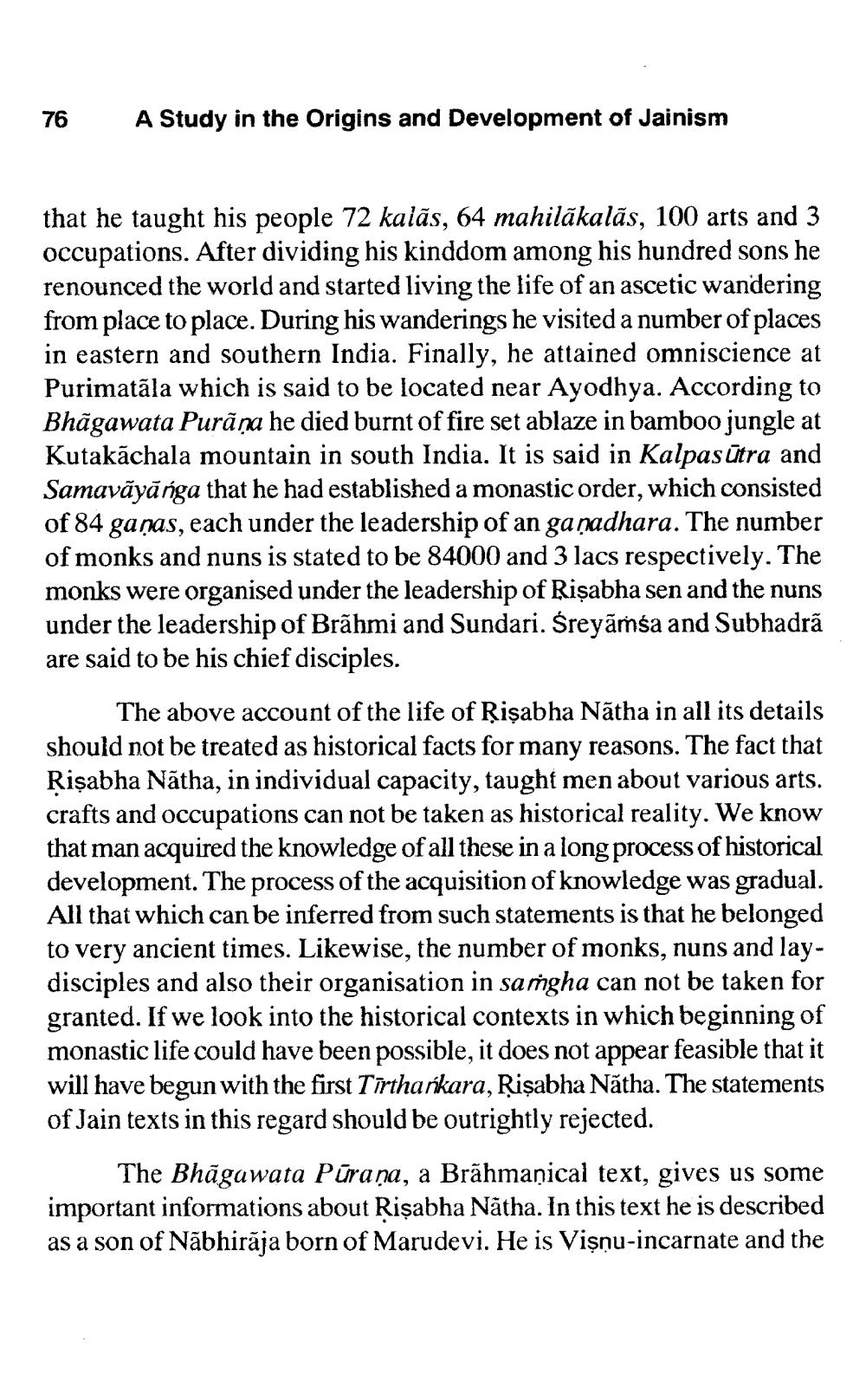________________
76
A Study in the Origins and Development of Jainism
that he taught his people 72 kalās, 64 mahilākalās, 100 arts and 3 occupations. After dividing his kinddom among his hundred sons he renounced the world and started living the life of an ascetic wandering from place to place. During his wanderings he visited a number of places in eastern and southern India. Finally, he attained omniscience at Purimatala which is said to be located near Ayodhya. According to Bhagawata Puraṇa he died burnt of fire set ablaze in bamboo jungle at Kutakachala mountain in south India. It is said in Kalpasūtra and Samavāyānga that he had established a monastic order, which consisted of 84 ganas, each under the leadership of an ganadhara. The number of monks and nuns is stated to be 84000 and 3 lacs respectively. The monks were organised under the leadership of Risabha sen and the nuns under the leadership of Brahmi and Sundari. Śreyāṁśa and Subhadrã are said to be his chief disciples.
The above account of the life of Risabha Natha in all its details should not be treated as historical facts for many reasons. The fact that Risabha Natha, in individual capacity, taught men about various arts. crafts and occupations can not be taken as historical reality. We know that man acquired the knowledge of all these in a long process of historical development. The process of the acquisition of knowledge was gradual. All that which can be inferred from such statements is that he belonged to very ancient times. Likewise, the number of monks, nuns and laydisciples and also their organisation in samgha can not be taken for granted. If we look into the historical contexts in which beginning of monastic life could have been possible, it does not appear feasible that it will have begun with the first Tirthankara, Risabha Natha. The statements of Jain texts in this regard should be outrightly rejected.
The Bhagawata Pūraṇa, a Brāhmaṇical text, gives us some important informations about Risabha Natha. In this text he is described as a son of Nãbhiraja born of Marudevi. He is Viṣṇu-incarnate and the




